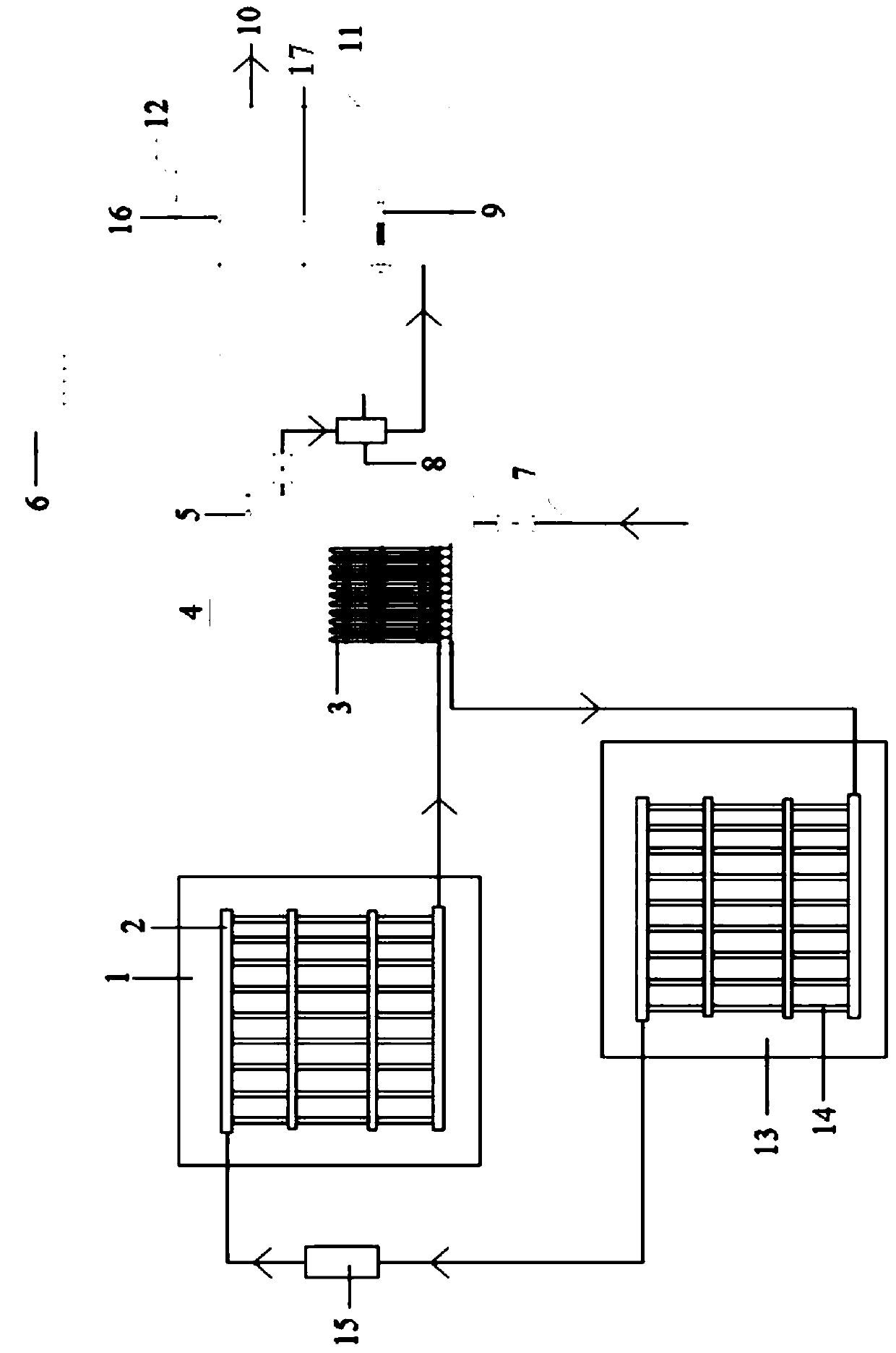Solar photovoltaic and photo-thermal integrated system for recycling waste heat by utilizing capillary tube
A solar photovoltaic and solar photovoltaic panel technology, applied in solar thermal energy, heating system, photovoltaic thermoelectric hybrid power generation, etc., can solve the problems of solar photovoltaic panel heat waste, restricting photoelectric conversion efficiency, etc., to improve power generation efficiency and ensure photoelectric conversion. Efficient, lightweight effect
- Summary
- Abstract
- Description
- Claims
- Application Information
AI Technical Summary
Problems solved by technology
Method used
Image
Examples
specific Embodiment approach 1
[0024] Specific implementation mode 1: This implementation mode is a solar photovoltaic photothermal integrated system that uses capillary tubes to recover waste heat, such as figure 1 As shown, it is specifically composed of a solar photovoltaic panel 1, a first capillary network 2, a second capillary network 3, a water exchange tank 4, a first water level sensor 5, a controller 6, a first water pump 8, an electric heater 9, and a heating water tank 11. A temperature and pressure safety valve 12, a third capillary network 14, a second water pump 15, a second water level sensor 16 and a temperature sensor 17;
[0025] The first capillary network 2 is fixed on the outer wall of the solar photovoltaic panel 1, the water outlet of the first capillary network 2 is connected with the water inlet of the second capillary network 3, and the water outlet of the second capillary network 3 is connected with the third capillary network 14 The water inlet of the third capillary network 14 ...
specific Embodiment approach 2
[0037] Specific embodiment two: the difference between this embodiment and specific embodiment one is: the outer diameter of the main pipe of the first capillary network 2 is 20 mm, and the wall thickness is 2 mm; the outer diameter of the capillary of the first capillary network 2 The diameter is 4.3mm and the wall thickness is 0.8mm. Others are the same as the first embodiment.
specific Embodiment approach 3
[0038] Specific embodiment three: the difference between this embodiment and specific embodiment one or two is that: the outer diameter of the main pipe of the second capillary network 3 is 20 mm, and the wall thickness is 2 mm; the capillary of the first capillary network 2 The outer diameter is 4.3mm and the wall thickness is 0.8mm. Others are the same as those in Embodiment 1 or 2.
PUM
 Login to View More
Login to View More Abstract
Description
Claims
Application Information
 Login to View More
Login to View More - R&D
- Intellectual Property
- Life Sciences
- Materials
- Tech Scout
- Unparalleled Data Quality
- Higher Quality Content
- 60% Fewer Hallucinations
Browse by: Latest US Patents, China's latest patents, Technical Efficacy Thesaurus, Application Domain, Technology Topic, Popular Technical Reports.
© 2025 PatSnap. All rights reserved.Legal|Privacy policy|Modern Slavery Act Transparency Statement|Sitemap|About US| Contact US: help@patsnap.com

